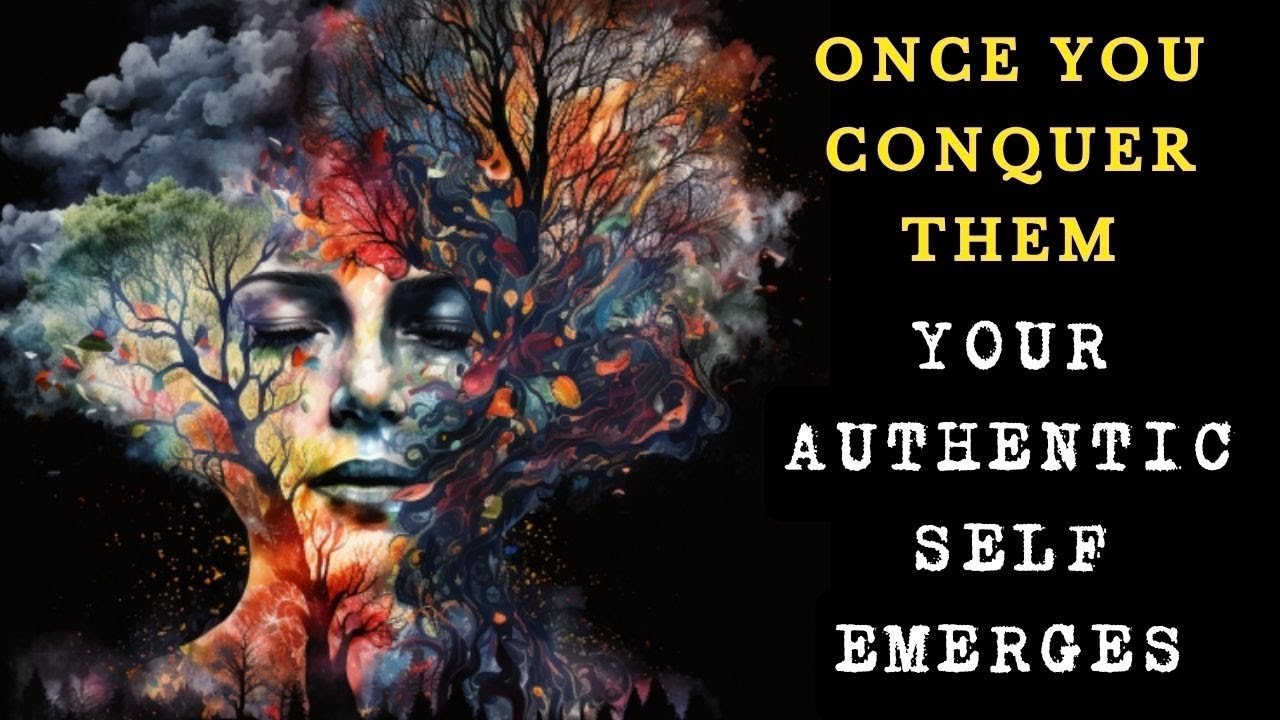In “Emotions Are Temporary Visitors: Observing and Understanding,” you’re invited to explore the idea that emotions, whether intense like fear, jealousy, or rejection, are just visitors in the vast landscape of your mind. By stepping back and observing these feelings rather than taking them personally, you can diminish their power. Inspired by Mooji’s teachings, this approach encourages a deeper understanding of your emotions, enabling you to connect with your authentic self and reach a place of inner peace. This shift in perspective enables you to master your emotions, opening the door to freedom and limitless personal growth.
The practice of observing emotions can transform challenges into opportunities for spiritual development. By consistently acting as an observer, you reduce the mind’s grip on your feelings, allowing you to transcend negativity and embrace a more powerful version of yourself. Rather than resisting or identifying with emotions, let them be present and explore the messages they bring. This journey toward understanding not only helps in navigating life’s ups and downs but also fosters a fulfilling return to your original, serene state of being.
Understanding Emotions as Temporary Visitors
The Concept of Emotions as Visitors
Imagine your emotions as guests who visit for a while and then move on. They aren’t permanent residents in your mind but temporary visitors that come and go. This perspective can help you distance yourself from the emotional storms that sometimes rage within. Emotions like happiness, sadness, anger, or fear arise due to various triggers in our daily lives, and understanding them as transient can help you manage them better. By viewing emotions this way, you pave the way for greater emotional freedom and resilience.
Why We Should Not Identify Personally with Emotions
When you personally identify with emotions, you begin to see them as part of who you are. This is where trouble begins because emotions are fluid and ever-changing. By attaching your identity to these fluctuating states, you are tethering yourself to an unstable foundation. Instead, recognize that emotions are simply experiences passing through, rather than defining who you are. This distinction is vital to maintain your inner peace and avoid the unnecessary turbulence that comes from emotional identification.
The Impact of Personal Identification with Emotions
How Identification Intensifies Emotional Experiences
Personal identification with emotions often amplifies their intensity. Consider how a fleeting feeling of jealousy can morph into a tempestuous storm when you start believing that it defines you as an envious person. By over-identifying with an emotion, you give it undue power and allow it to dictate your actions and thoughts. This magnification can lead to a cycle of emotional overwhelm, making minor setbacks feel like insurmountable obstacles.
The Decrease in Consciousness with Emotional Attachment
When you attach yourself to emotions, your consciousness often takes a back seat. You lose awareness of the present moment as emotions take control. It’s like being caught in a dense fog that obscures reality, limiting your ability to perceive things clearly. When this happens, your true self is overshadowed, leading to reactive rather than proactive behavior, which diminishes your innate wisdom and capacity for self-awareness.

This image is property of i.ytimg.com.
Observing Emotions for Greater Understanding
The Power of Observation over Resistance
Instead of resisting emotions when they arise, try observing them. Observing allows you to maintain a space between you and your emotions, creating room for understanding and insight. Resistance, on the other hand, often leads to a buildup of emotional energy, escalating stress and discomfort. By simply watching your emotions without judgment, you can learn from them and reduce their grip on you.
Gaining Insights from Emotional Experiences
Every emotional experience, pleasant or painful, can be a source of insight. Emotions carry messages about your needs, desires, and values. By observing rather than suppressing them, you can glean valuable information about your inner world. What is this emotion telling you? What might it be pointing to in your life? By exploring these questions, you can gain a deeper understanding of yourself and the forces that drive you.
The Role of Observation in Emotional Mastery
Transitioning from Emotional Reaction to Observation
Shifting from reacting to emotions to observing them is crucial for emotional mastery. This transition involves training yourself to pause when emotions arise, taking a moment to watch rather than act immediately. As you practice this, you’ll find that your emotional responses become less impulsive and more measured. Over time, this habit strengthens your ability to navigate life’s challenges with grace.
Practicing Detachment and Emotional Understanding
Detachment doesn’t mean indifference; rather, it involves releasing the clinging nature of emotional experiences. By practicing detachment, you allow emotions to pass through without becoming ensnared by them. This practice fosters a deeper understanding of emotions, as you can appraise them from a neutral standpoint, enhancing your emotional intelligence and resilience.

Techniques for Observing Emotions
Mindfulness and Meditation Practices
Incorporating mindfulness and meditation into your routine can greatly aid in observing emotions. These practices help you become more present and aware of your inner landscape. Mindfulness encourages you to notice your thoughts and feelings without judgment, while meditation offers a space to center yourself and detach from emotional turmoil. Together, they create a powerful foundation for emotional observation.
Recognizing and Accepting Emotional States
An important step in emotional observation is recognizing and accepting what you’re feeling at any given moment. Sometimes, acknowledging an emotion is all it takes to lessen its intensity. By accepting your emotional state as it is, without labeling it as good or bad, you allow it to naturally transform, reducing its hold over you.
Identifying the ‘Suffering Entity’ Within
Understanding the Source of Emotional Pain
Within each of us lies a ‘suffering entity’—the part that clings to pain and relishes in negative emotional states. Understanding this entity is crucial for lessening emotional distress. By identifying what feeds this suffering, you can begin to dismantle its influence, revealing a clearer path to inner peace and happiness.
Steps to Reduce Emotional Distress by Understanding the Self
To reduce emotional distress, engage in self-reflection to uncover the roots of your emotional pain. Ask yourself where this suffering stems from and what perpetuates it. By bringing these aspects to light, you can address them, whether through self-compassion, seeking support, or adopting healthier beliefs and behaviors, thereby reducing emotional suffering.

Emotions as Opportunities for Spiritual Growth
Viewing Emotional Challenges as Growth Opportunities
Consider each emotional challenge as a stepping stone to spiritual growth. These challenges encourage self-exploration and personal development. When faced with intense emotions, use them as opportunities to stretch your spiritual muscles, gaining strengths that only come from facing adversity head-on.
Embracing Intense Emotions for Self-Discovery
Intense emotions can act as gateways to deeper self-discovery. By embracing them with an open heart, you invite insights and personal evolution. These emotions can guide you to parts of yourself that need understanding, healing, and transformation.
Building a Natural State of Observation
Practicing Consistent Observation
Consistent observation is essential to cultivating a natural state of emotional detachment and understanding. Practice making observation a daily habit, not just during emotional highs and lows. This steady awareness becomes a backdrop to your life, providing clarity regardless of external circumstances.
Achieving Emotional Transcendence Over Time
With dedication, observation can lead to emotional transcendence, where emotions no longer hold sway over your life. Over time, they become mere clouds passing through the sky of your awareness, neither distracting nor defining your sense of self.
Connecting with a Deeper Self
Tapping into Inner Peace and Power
Observing your emotions turns your focus inward, helping you connect with your deeper self—a place of immense peace and power. Here, you find a reservoir of strength and calm that supports you through life’s vicissitudes, offering a sense of stability and grounding.
Experiencing a Homecoming to Original State
As you deepen your practice, you may experience a homecoming to your original state—your true self, untethered by emotional turbulence. This return is characterized by a profound sense of belonging and the realization that your true essence is far beyond transient emotional experiences.
Conclusion
The Journey from Reaction to Observation
Transitioning from emotional reaction to observation marks the beginning of a transformative journey. It opens the door to greater understanding and mastery over your internal world, allowing you to navigate life with greater ease and grace.
The Ultimate Freedom Achieved Through Emotional Mastery
The ultimate freedom is achieved when you realize that you are not your emotions. Mastering this understanding liberates you from their chains, allowing you to live fully and authentically, guided by your deeper self rather than fleeting emotional states. Embrace this journey, for with each step, you move closer to the freedom and fulfillment that is your birthright.

